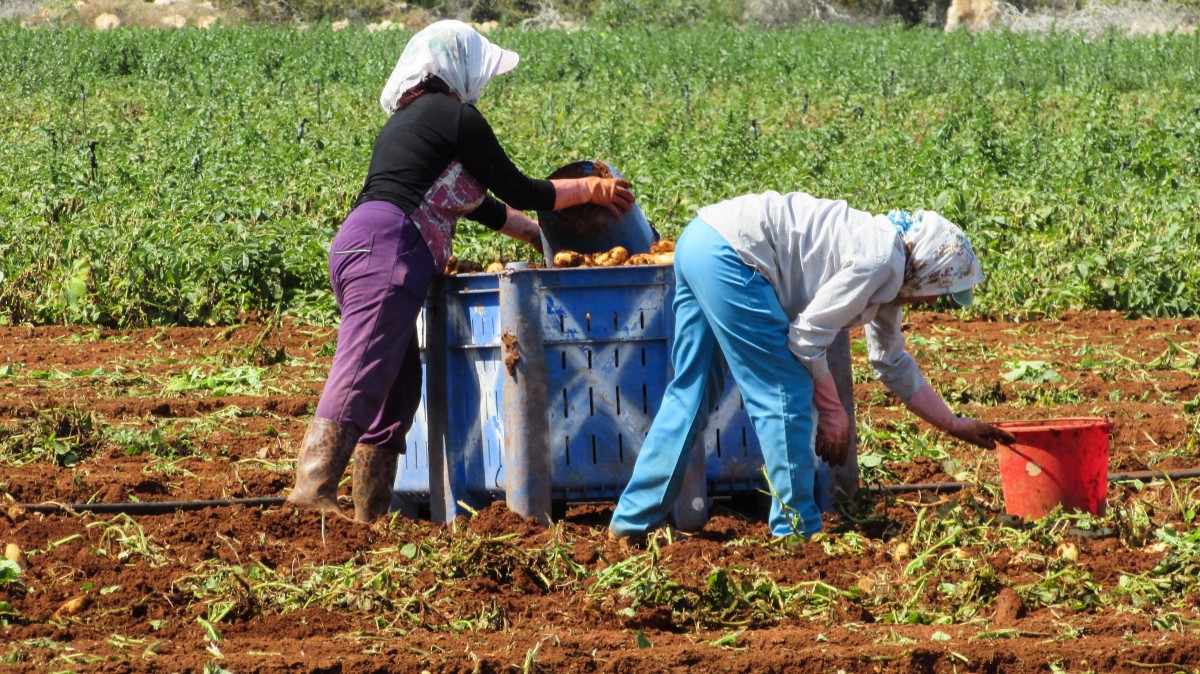
- Migrant workers regularly suffer violence, long working hours and undue payments, according to a study carried out in nine countries of the European Union. In almost all States, salaries are lower than the minimum, while women receive even lower salaries.

In Europe, about 2.4 million migrants have worked in the agricultural sector, one in four people in the profession. Researchers at the Pontifical Comillas University and the Oxfam Intermón University Institute for Migration Studies (IUEM) have published a press release on the Essential but invisible and exploited report. Millions of migrants have been victims of exploitation and human rights abuses. This study was carried out in Finland, France, Germany, Greece, Spain, Italy, the Netherlands, Poland and Sweden, among others.
They have denounced the working conditions of migrant workers, who regularly suffer violence, long working hours and insufficient pay, and have denied any form of discrimination. “We want to show the weakest part of the European agricultural industry, which focuses on exploitation and non-compliance with European legislation,” said Oxfam Intermón researcher Carlos Ruiz. Migrants report that they receive lower than minimum wages in all States, except Finland, and that women are often paid even lower wages. Half of the women who have participated in the study in the region of Huelva say that they earn less money than men, while women who have participated in Italy claim 30% less money than men.
Ruiz has stated that migrant people have become a "structural element" of the agri-food chain in the Basque Country. In fact, states and the European Union considered them “essential workers in the pandemic”, said IUEM-Comillas researcher Yoan Molinero Gerbeau. Ruiz has denounced that the abuses they suffer, although they are important in the sector, are "equally structural".
Abuse and isolation
The report emphasises that victims are of all kinds of abuse. They have cited the abuses of mediators, such as the “self-exploitation” provoked by last-minute demands. In the face of workers' strikes, they have warned that "violence" and "intimidation" are "common". They have also highlighted the case of Thai workers working in Sweden, who work between 12 and 19 hours a day in 6 days a week.
There have also been sexual abuse and some workers have reported cases of sexual blackmail by pension supervisors, according to Interior. “Some workers live in makeshift marginal sites and do not have water, electricity, heating or waste collection,” the report said. He also referred to the risk of fires, accidental or provoked, and the lack of housing for some workers.
In particular, in Spain and Italy, workers usually do not have adequate training and protective equipment, leading to accidents and injuries. Falls, cuts, animal bites, heat strokes and injuries from improper use of machines are some examples. They have reported the case of a man from Murcia who died after working all day without drinking water and with a temperature of 44 degrees in the center of the Murcian capital.
Isolation hampers workers' knowledge of local society and language. “Migrants working in the agricultural sector have many challenges in accessing health services, from the lack of information about their rights to administrative and linguistic barriers,” said Ruiz.
Road to improvement
The European Union has just adopted a Due Diligence Directive which “obliges companies to respect people’s rights and the environment throughout the value chain”. Oxfam Intermón pointed out that there is “hope” and that new legislation can be an instrument to help tackle exploitation: “These rules will facilitate access to justice and compensation, as well as the obligation of agro-industry and retailers to prevent and assume their responsibilities for human rights violations.”
Oxfam Intermón has, however, made concrete demands to improve the situation of these migrant workers, such as guaranteeing human rights in the agricultural industry through the new European Union Supply Chain Law, promoting the representation and defence of migrant agricultural workers in trade union structures and improving accommodation possibilities through adequate funding.